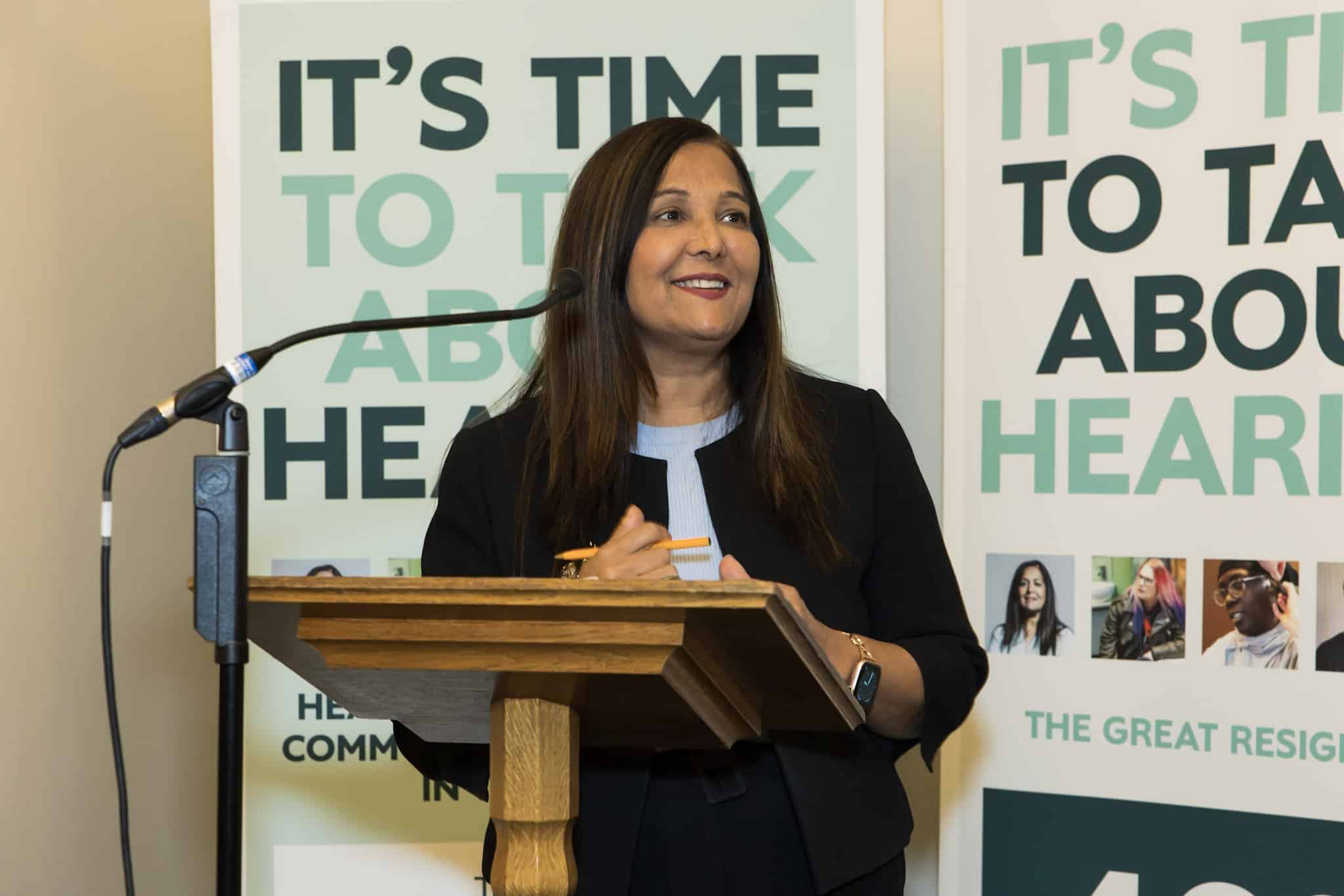The silent employment crisis: Hearing loss hits jobs
New research from Specsavers
Millions of workers admit hearing loss is affecting their ability to do their job – but almost 64% still haven’t had a hearing check.This revelation comes despite 84% admitting that being able to hear clearly is crucial for their work. These insights come from new research conducted by Specsavers, which surveyed 2,000 working adults in the UK.
Specsavers commissioned research carried out in October 2024 by OnePoll among 2,000 working adults.
People have not pursued a hearing check for various reasons, according to the survey. For 26%, they believed it wasn't necessary, while 25% felt their hearing difficulties weren't severe enough to warrant a check.

Despite this, many respondents also report that hearing loss significantly impacts them in the workplace. This unaddressed hearing loss means they regularly ask colleagues to repeat themselves (37%), make mistakes due to hearing difficulties (22%), and it even impacts their ability to perform their job properly (15%).
Millions of workers admit hearing loss is affecting their ability to do their job – but almost 64% still haven’t had a hearing check.This revelation comes despite 84% admitting that being able to hear clearly is crucial for their work. These insights come from new research conducted by Specsavers, which surveyed 2,000 working adults in the UK.
Specsavers commissioned research carried out in October 2024 by OnePoll among 2,000 working adults.
People have not pursued a hearing check for various reasons, according to the survey. For 26%, they believed it wasn't necessary, while 25% felt their hearing difficulties weren't severe enough to warrant a check. Despite this, many respondents also report that hearing loss significantly impacts them in the workplace.

This unaddressed hearing loss means they regularly ask colleagues to repeat themselves (37%), make mistakes due to hearing difficulties (22%), and it even impacts their ability to perform their job properly (15%).
Even with hearing loss having such a significant impact on working life, 72% of people have not discussed it with their employer. And of those who did speak up, 17% feared discrimination, a quarter faced concerns about their job performance from their employer, 19% experienced a change in treatment at work, and 17% were excluded from meetings or discussions. In fact, almost one in five (18%) have considered leaving or changing their job due to hearing issues. Separate research from Action on Hearing Loss reinforces the Specsavers findings, with 40% of those who had retired early, citing hearing loss as a factor.
'Our hearing experts, with their clinical skills and accessible locations, are perfectly placed to deliver these services, easing the load on the NHS.'
Improving access to hearing care is essential for employment retention
Dr Zoe Williams, GP and TV doctor, comments: ‘Now is the time to talk about hearing and address the serious impact hearing loss has on working individuals and those who feel forced to take early retirement. Most people don’t need to let hearing loss disrupt their careers or result in them leaving their jobs. Many could benefit significantly from having a hearing check and other audiology services made more widely available on the high street.’
The knock-on impact of hearing loss across the UK economy is huge, resulting in a value of £25 billion in lost productivity and unemployment each year. Yet, access to NHS hearing care is currently a postcode lottery – creating barriers for those seeking a diagnosis and support. For some, NHS audiology services, such as hearing devices, aftercare and wax removal, are available for free on their local high street. However, for others, hearing care services can only be accessed through GP referral to a hospital or by paying for their own care.
Latest figures for England suggest there are more than 120,000 people currently sitting on NHS waiting lists and an average wait time of 18 weeks for hospital-based hearing services. Long wait times to get help can lead to people being forced to leave their job or retire early.
Calling on the Government to improve access to healthcare
Specsavers is calling on the Government to ensure all areas have access to NHS audiology services in the community and to implement NHS England self-referral guidance consistently to allow those needing NHS hearing care to see a professional audiologist on the high street without having to see their GP first. This would free up 500,000 GP appointments a year, enabling timely care within four weeks.
Carina Hummel, Managing Director for Audiology at Specsavers comments: ‘As experts in eye and hearing care, Specsavers is ready and able to support the NHS to do this. Our hearing experts, with their clinical skills and accessible locations, are perfectly placed to deliver these services, easing the load on the NHS. This move will help improve patient outcomes, and support access for patients.’
This week, MP Yasmin Qureshi, alongside Specsavers and Dr Zoe Williams, hosted a parliamentary reception, ‘It’s Time to Talk About Hearing’, to discuss the significant impact of hearing loss on society and the economy, and call on the Government to make NHS hearing care more widely available for everyone in the community.
MP, Yasmin Qureshi who herself has hearing loss comments: ‘I know through my own first-hand experience that the impact of unaddressed hearing loss is profound. It impacts employment, complicates communication and social interactions, often leading to social isolation and loneliness. It is vital that we address the postcode lottery that prevents some people from easily accessing hearing care.
To find out more about how Specsavers is advocating for change in audiology care commissioning take a look at the ‘It’s Time To Talk About Hearing’ Report, which was formally launched at the event, available here.
